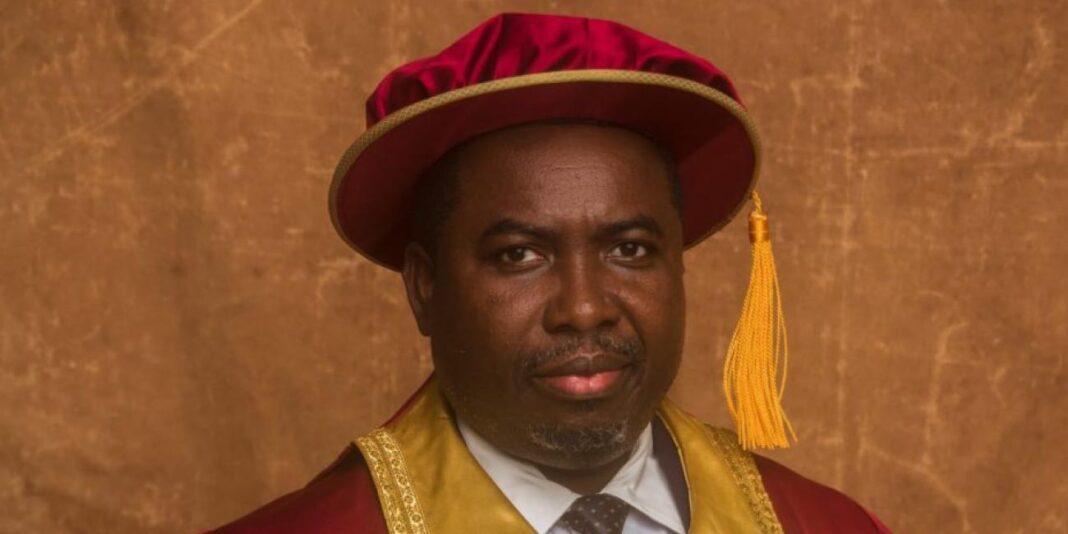With the appointment of Professor Joash Ojo Amupitan as Chairman of the Independent National Electoral Commission (INEC) in October 2025, Nigerians appear to be at a pivotal moment in the evolution of their electoral system. His assumption of office comes at a time when public trust in the electoral process is severely challenged, and the looming Anambra State governorship election promises an early test of his leadership.
Amupitan, a professor of law and Senior Advocate of Nigeria, succeeds Prof. Mahmood Yakubu, who served two full terms and introduced significant reforms, including the Bimodal Voter Accreditation System (BVAS) and the INEC Result Viewing Portal (IReV). Under these reforms, the commission achieved notable technological milestones; however, the 2023 general elections exposed deep cracks, including delays in uploading results, logistical challenges, and persistent perceptions of manipulation. These events contributed to diminished confidence in the electoral process and placed a heavy burden on the new chairman.
Observers note that one of the immediate expectations placed on Amupitan is the restoration of public trust in INEC. Civil society groups, political parties and electoral observers agree that transparency, neutrality and effective use of technology must be central to his agenda. At his inaugural meeting with INEC directors in Abuja, Amupitan declared that “the integrity of our elections is non-negotiable,” setting a tone of renewed urgency.
In the immediate term, the Anambra governorship election presents both a challenge and an opportunity. The state has a history of complex electoral dynamics, often involving questions of result credibility, mobilization of dossiers, and intimidation of voters. Amupitan’s leadership will be judged on whether INEC can manage the logistics of issuance, accreditation, collation, and announcement without the controversies that marred recent elections. Success in Anambra could bolster his legitimacy and signal a turning point for Nigeria’s electoral governance. Failure could deepen skepticism and stall reform momentum.
Specific reforms that Nigerians expect include the clarification of roles and mechanisms around IReV and BVAS. Many citizens remain unclear about what these technologies do or how they are protected from tampering. Amupitan will need to ensure that INEC staff are fully trained on these systems, that backup infrastructure is robust, and that real-time communication with the public is improved. The commission’s performance during the Anambra election will hinge on whether results are uploaded promptly, without unexplained delays, and whether the system resists manipulation or disruption.
Another critical area is the handling of electoral offenses. Vote buying, ballot snatching, intimidation, and violent disruption remain persistent threats. Under Amupitan, INEC is expected to advance legal and institutional reforms, such as support for an Electoral Offenses Commission and clearer accountability for erring officials. Analysts say that without credible sanctions for electoral fraud, the cycle of impunity will continue, and public engagement will shrink further.
Continuous voter registration is also high on the list of priorities. Many Nigerians, particularly youths, remain unregistered or misregistered and are therefore barred from electoral participation. Amupitan’s predecessor flagged this as a major concern. The new chairman must ensure that registration windows are inclusive, well-publicized, and free of discrimination, particularly in rural areas and among marginalized groups. The Anambra election offers an opportunity to deepen voter inclusion and signal that the register is credible and accessible.
Political parties and civil society have emphasized the need for improved inter-agency coordination. Election security depends on credible collaboration between INEC, security agencies, state governments, and local officials. In past elections, failures in coordination have resulted in delayed polling unit opening, absentee electoral materials, and unattended accreditation machines. As part of reform, Amupitan will need to prioritize pre-election readiness, deploy logistics well ahead of polling day, and ensure all stakeholders understand their roles and responsibilities.
In the broader legal framework, calls persist for amendments to the Electoral Act and other statutes governing INEC operations. These reforms include strengthening the independence of INEC’s leadership, improving the appointment process of the chairman and commissioners, and ensuring that electoral dispute resolution is expedited. The fact that Amupitan’s appointment came at a time of renewed emphasis on these structural issues adds to the weight of expectation on his tenure.
In practical terms, Nigerians watching the electoral horizon will look for a few tangible signs under Amupitan’s watch: prompt, clear communication before, during, and after elections; minimal reports of equipment failure or accreditation delays; transparent collation and result live-updates; visible action against electoral malpractices; and evidence that the voice of each registered voter is counted and respected.
The challenge will not be limited to one election cycle. Anambra marks only the beginning. The 2027 general elections loom on the horizon and will test INEC’s capacity across multiple states, contested offices, and national significance. Therefore, Amupitan’s early performance in Anambra may determine whether he builds momentum or begins his tenure under a cloud of doubt.
The new chairman inherits a commission that has evolved but remains fragile in public perception. The foundation laid by his predecessor established technology-driven processes and wider stakeholder engagement. What remains is closing the trust gap, delivering consistent performance, and ensuring that Nigeria’s elections are not only technically credible but accepted as fair by a skeptical public.
In assuming the role, Amupitan has signaled his intention to treat INEC’s responsibilities with seriousness and integrity, emphasizing staff welfare and organizational cohesion within the commission. If his leadership translates into tangible improvement at the ballot box, beginning in Anambra, it could reshape Nigeria’s democratic trajectory. Yet the stakes remain high. The eyes of a nation wary of broken promises are watching. The Anambra governorship election offers the space to turn rhetoric into reality, and Nigerians will be quick to mark whether this new phase brings renewed confidence or sustains the cycle of election after election, trust after trust, lost.
Samuel Aina

